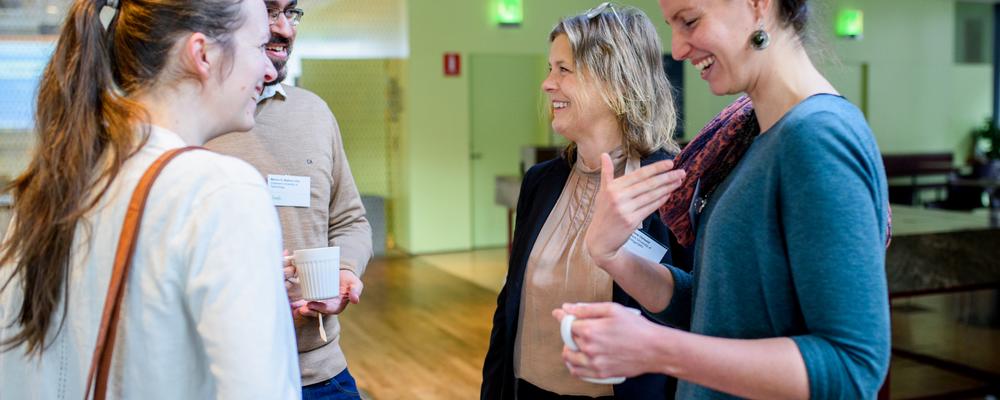In order to transform society and achieve sustainable development at local, national and global levels, collaboration between all parts of society is required. No single actor alone has the answers and solutions. Another prerequisite for being able to implement a sustainable transition is knowledge. We therefore need to meet across organisational boundaries to develop, exchange and utilise knowledge together through meetings, networks, and partnerships. The academy has a special role and responsibility to ensure that the sustainable transition is based on knowledge. The three universities are therefore now creating the collaboration arena Wexsus, which will work closely with the “Västra Götaland Region” and the other universities in western Sweden, as well as with other important societal actors.
In June 2023, the rectors of the three universities signed an agreement to jointly create a West Swedish collaboration arena for sustainable development. During the autumn, the work of forming the collaboration arena continued when, for instance, the name Wexsus was decided. The name has been chosen because it carries the idea of facilitating collaboration and creating partnerships between different societal actors. Nexus means connection or connections and that is exactly what Wexsus will do – create relationships and exchange knowledge between actors from all sectors of society.
The development of the West Swedish collaboration arena has been led by Pam Fredman, acting director of Wexsus and former vice-chancellor of the University of Gothenburg.
– We need a new arena for collaboration where all sectors of society can meet and which is characterised by a holistic approach where all dimensions of sustainable development are discussed. We must then seriously discuss both synergies and goal conflicts in the solutions proposed for a sustainable transition. Therefore actors from academia, business, the public sector and civil society need to meet in dialogue, network and enter into new partnerships. It's not easy to work together, but we have to! For Wexsus, 2024 will be a creative year when we try something new and I hope that many want to join us when we're now getting started, says Pam Fredman.
The work to form the West Swedish arena for sustainable development started within the alliance “Lärosäten Väst”, where in addition to the three universities that are part of Wexsus, the University of Borås, the University of Skövde and the University of Jönköping are also involved. Wexsus will collaborate with these universities in different ways so that the entire region can participate and contribute to the activities. The forms of partnership with other sectors of society such as government agencies, business and the non-profit sector will be developed based on both existing and new collaborations. Chalmers University of Technology and the University of Gothenburg have had an established collaboration in environmental science and sustainable development in various forms since the 1990s, and the joint organisation Gothenburg Centre for Sustainable Development, GMV, is now merged with its operations in Wexsus.
Wexsus will now clearly define its mission and during the start-up year 2024 develop the operations as: being an open meeting place, creating networks, utilizing knowledge, developing methods and processes and constituting a portal function. An important aspect is that Wexsus will not work with what is already being done in the universities' regular activities but will create added value and new synergies between academia and external actors.
